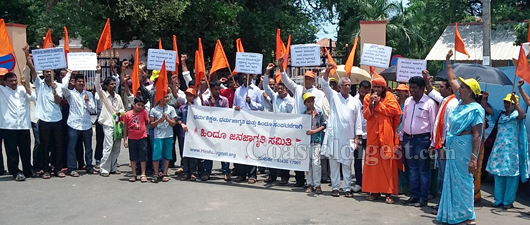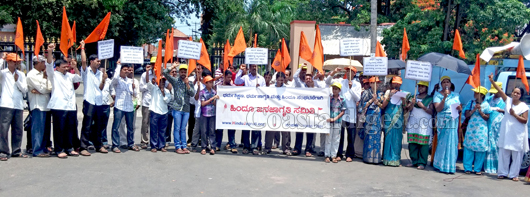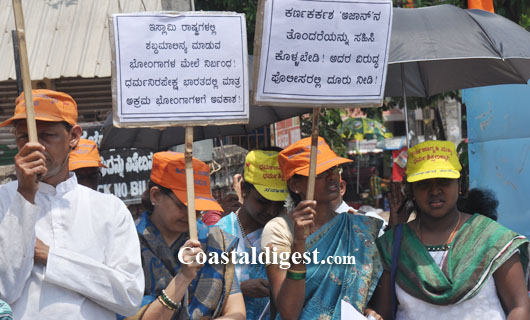Hounde, Jul 28: Coronavirus and its restrictions are pushing already hungry communities over the edge, killing an estimated 10,000 more young children a month as meager farms are cut off from markets and villages are isolated from food and medical aid, the United Nations warned Monday.
In the call to action shared with The Associated Press ahead of publication, four UN agencies warned that growing malnutrition would have long-term consequences, transforming individual tragedies into a generational catastrophe.
Hunger is already stalking Haboue Solange Boue, an infant from Burkina Faso who lost half her former body weight of 5.5 pounds (2.5 kilograms) in just a month. Coronavirus restrictions closed the markets, and her family sold fewer vegetables. Her mother was too malnourished to nurse.
“My child,” Danssanin Lanizou whispered, choking back tears as she unwrapped a blanket to reveal her baby's protruding ribs.
More than 550,000 additional children each month are being struck by what is called wasting, according to the UN — malnutrition that manifests in spindly limbs and distended bellies. Over a year, that's up 6.7 million from last year's total of 47 million. Wasting and stunting can permanently damage children physically and mentally.
“The food security effects of the COVID crisis are going to reflect many years from now,” said Dr. Francesco Branca, the WHO head of nutrition. “There is going to be a societal effect.”
From Latin America to South Asia to sub-Saharan Africa, more poor families than ever are staring down a future without enough food.
In April, World Food Program head David Beasley warned that the coronavirus economy would cause global famines “of biblical proportions” this year. There are different stages of what is known as food insecurity; famine is officially declared when, along with other measures, 30% of the population suffers from wasting.
The World Food Program estimated in February that one Venezuelan in three was already going hungry, as inflation rendered salaries nearly worthless and forced millions to flee abroad. Then the virus arrived.
“Every day we receive a malnourished child,” said Dr. Francisco Nieto, who works in a hospital in the border state of Tachira.
In May, Nieto recalled, after two months of quarantine, 18-month-old twins arrived with bodies bloated from malnutrition. The children's mother was jobless and living with her own mother. She told the doctor she fed them only a simple drink made with boiled bananas.
“Not even a cracker? Some chicken?” he asked.
“Nothing,” the children's grandmother responded. By the time the doctor saw them, it was too late: One boy died eight days later.
The leaders of four international agencies — the World Health Organization, UNICEF, the World Food Program and the Food and Agriculture Organization — have called for at least dollar 2.4 billion immediately to address global hunger.
But even more than lack of money, restrictions on movement have prevented families from seeking treatment, said Victor Aguayo, the head of UNICEF's nutrition program.
“By having schools closed, by having primary health care services disrupted, by having nutritional programs dysfunctional, we are also creating harm,” Aguayo said. He cited as an example the near-global suspension of Vitamin A supplements, which are a crucial way to bolster developing immune systems.
In Afghanistan, movement restrictions prevent families from bringing their malnourished children to hospitals for food and aid just when they need it most. The Indira Gandhi hospital in the capital, Kabul, has seen only three or four malnourished children, said specialist Nematullah Amiri. Last year, there were 10 times as many.
Because the children don't come in, there's no way to know for certain the scale of the problem, but a recent study by Johns Hopkins University indicated an additional 13,000 Afghans younger than 5 could die.
Afghanistan is now in a red zone of hunger, with severe childhood malnutrition spiking from 690,000 in January to 780,000 — a 13% increase, according to UNICEF.
In Yemen, restrictions on movement have blocked aid distribution, along with the stalling of salaries and price hikes. The Arab world's poorest country is suffering further from a fall in remittances and a drop in funding from humanitarian agencies.
Yemen is now on the brink of famine, according to the Famine Early Warning Systems Network, which uses surveys, satellite data and weather mapping to pinpoint places most in need.
Some of the worst hunger still occurs in sub-Saharan Africa. In Sudan, 9.6 million people live from one meal to the next — a 65% increase from the same time last year.
Lockdowns across Sudanese provinces, as around the world, have dried up work and incomes for millions. With inflation hitting 136%, prices for basic goods have more than tripled.
“It has never been easy but now we are starving, eating grass, weeds, just plants from the earth,” said Ibrahim Youssef, director of the Kalma camp for internally displaced people in war-ravaged south Darfur.
Adam Haroun, an official in the Krinding camp in west Darfur, recorded nine deaths linked with malnutrition, otherwise a rare occurrence, over the past two months — five newborns and four older adults, he said.
Before the pandemic and lockdown, the Abdullah family ate three meals a day, sometimes with bread, or they'd add butter to porridge. Now they are down to just one meal of “millet porridge” — water mixed with grain. Zakaria Yehia Abdullah, a farmer now at Krinding, said the hunger is showing “in my children's faces.”
“I don't have the basics I need to survive,” said the 67-year-old, who who hasn't worked the fields since April. “That means the 10 people counting on me can't survive either.”










Comments
Fertility Rate : Buddhist 1.6 Jews 2.4 Hindus 2.6 Christians 2.8 Muslims _3.1 - PEW Research Centre . Don't dare to inflict Muslims..2070 is not very far...
Fertility Rate : Buddhist 1.6 Jews 2.4 Hindus 2.6 Christians 2.8 Muslims _3.1 - PEW Research Centre . Don't dare to inflict Muslims..2070 is not very far...
Please ban ringing of the bells and geeta recitation on microphone then we will happily stop the fajr azan..
if you want to ban adhan due to noise pollution ..... than what about crackers you use in diwali and colors mixed in water use in holis which may also harm society in the form of pollution....i am sorry to say that if it is wrong..... islam is a religion of peace.....no one have any authority to ban azaan-e-fajr or any other islamic works .......
Extremists on either side have rarely any agenda to make welfare of this country, its people. Most are found to be hypocrites. I had seen one of them. Brainwashing youngsters for self gain. These people can't be stopped till the end, but they can be suppressed. If good people fail to prevail, all shall perish with the corruption they would spread in land. As far as their demand is concerned, everyone knows how bad a place they all have made their Mangalore.
Ye sab Jo fajar azaan Ko ban kar rahe hai na wo firaun ka kaam kar rahe hai jab Allah subhanahutala ka azaab in par barsega na tab inko pata lage ga Allah inko nistonabut karde ye sab fanah o fillah hojayeinge or hum dekheinge inko kitni aaram Ki neend soyeinge yeh log or yeh bolte phirte hai k India is a secular state kuch toh seekhte father of the nation gandhiji se unohne kabhi Muslims or non Muslims Main farq nahi kiya
When india and Pakistan was carved at that time india didn't claim that its going to make a hindu nation. Rather nehru and ghandi asked Muslims to stay in india as this is going to be a secular state. Thats y muslims didn't shift to Pakistan. And now if somebody is forcing muslims to vacate from india then he/she declining the fundamental claims of the founding forefathers of india. If someone denies the dictations of father he/she should be called a bastard who doesnt respect their parents.
Add new comment